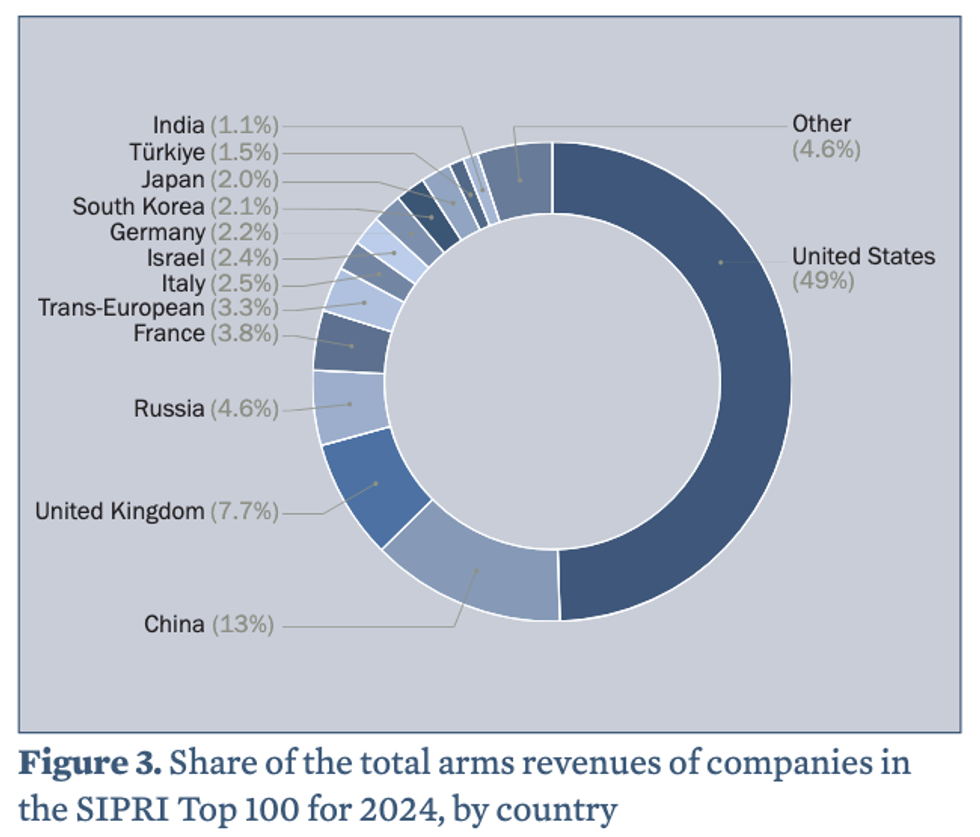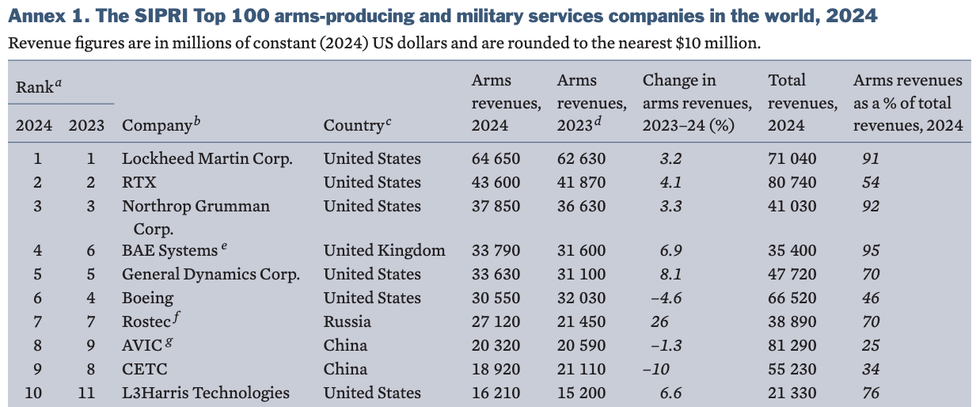January, 26 2010, 11:21am EDT

World Report 2010: Harsher Climate for Human Rights
Missed Opportunities and Bigger Challenges in Middle East in 2009
BEIRUT
Middle East governments repressed efforts to promote human rights
and backed away from bold reforms despite growing human rights
challenges and promises to take action, Human Rights Watch said today
in releasing the Jordan, Lebanon, Saudi Arabia, Syria, and Yemen
country studies from its World Report 2010.
The 612-page report,
the organization's 20th annual review of human rights practices around
the globe, summarizes major human rights issues in more than 90 nations
and territories worldwide, including 15 countries in the Middle East
and North Africa.
"The year 2009 was one of the missed opportunities for women and
migrants in the region," said Sarah Leah Whitson, Middle East director
at Human Rights Watch."For human rights defenders, their small space
for maneuvering shrank even further."
The studies detail missed opportunities on women's rights in Jordan,
Lebanon, Saudi Arabia, and Syria; ineffective measures to protect
migrant domestic workers in Jordan, Lebanon, and Saudi Arabia; torture
of suspects in custody in Lebanon, Saudi Arabia, and Syria; and
repression of human rights defenders in Saudi Arabia, Syria, and Yemen.
Saudi Arabia discriminated against its Shi'a population and Syria
against its Kurds; Lebanon disregarded the plight of its Palestinian
refugees; and Jordan stripped some Jordanians of Palestinian origin of
their Jordanian nationality. Yemen's government committed violations in
the civil war in the north and the social unrest in the south.
"Middle East governments should publicly set out their human rights
agenda for 2010," Whitson said, "and expect to be measured against
their achievements."
Middle Eastern governments responded weakly to calls to curb
violence against women. Perpetrators of so-called honor killings in
Jordan (where there were at least 20 such killings), and in Syria (at
least 12), benefit from legal provisions that mitigate their
punishments, even though Syria closed a legal loophole that allowed
such perpetrators to avoid criminal sanction altogether. Domestic abuse
went largely unpunished in Saudi Arabia and Yemen. In Lebanon and
Jordan, where domestic abuse can be tried as assault, protection
mechanisms for women are largely inadequate and ineffective.
Despite their increasing participation in public life, women faced
discrimination in personal status, nationality, and penal laws. In
Lebanon, Syria, Jordan, and Saudi Arabia, women cannot confer their
nationality either on foreign spouses or their children. Saudi women
require a male guardian's approval for travel, study or work, and to
receive health care in certain circumstances. Saudi Arabia promised to
abolish the male legal guardianship system over women, but failed to
take steps to do so.
Migrant domestic workers in the Middle East faced exploitation and
abuse by employers, including excessive work hours, non-payment of
wages, and restrictions on their liberty. Governments adopted some
measures to reduce the abuse but did not enforce them. Jordan issued
regulations providing certain rights to migrant domestic workers after
becoming the first Middle Eastern country in 2008 to include them under
the labor law. However, these regulations fell short of international
standards, and allow for an employer to confine a worker in the
employer's house.
In January in Lebanon, the Labor Ministry put in effect tighter
regulations for employment agencies and a standard employment contract
that clarifies certain terms and conditions of employment for domestic
workers, such as the maximum number of daily working hours. However,
the rules have no enforcement mechanisms. Suicides and botched escape
attempts killed many migrant domestic workers in Lebanon, with eight
deaths in October alone.
In Saudi Arabia, Syria, and Yemen, human rights defenders paid a
heavy price for their activities. Syrian State Security detained
Muhannad al-Hasani, president of the Syrian Human Rights Organization
in July, and Haytham al-Maleh, a prominent human rights lawyer, 78, in
October, and later charged them with "weakening national sentiment."
They remain detained. In Saudi Arabia, the secret police (mabahith)
arrested Muhammad al-'Utaibi and Khalid al-'Umair in January for
attempting to hold a peaceful protest in solidarity with the people of
Gaza. One year later, the mabahith still hold them despite the six-month legal limit on pre-trial detention and the prosecution's decision not to press charges.
In Yemen, Central Security, National Security, and Political
Security officers arrested scores of activists, mostly from the
secessionist so-called Southern Movement, and began trials of some of
them for "contesting the unity of the state," including Professor
Husain al-'Aqil, an online journalist, Salah al-Saqladi, and a former
diplomat, Muhammad 'Askar Jubran.
Syria has not licensed any human rights groups, and Saudi Arabia
refused legal recognition to at least two new rights groups. Jordan
passed a new law extending the government's ability to control and
interfere in the work of charitable organizations.
Lebanon, Saudi Arabia, Syria, and Yemen failed to tackle frequent
incidents of torture. Jordan's prison reform program has not
strengthened accountability mechanisms for torture. Conditions in
prisons and detention facilities were poor in Lebanon, with
overcrowding and lack of proper medical care a perennial problem. While
Lebanon ratified the Optional Protocol to the Convention against
Torture (OPCAT) in December 2008, the country has not yet fulfilled its
obligation to set up a national preventive mechanism to visit and
monitor places of detention.
Saudi authorities punished those they believed responsible for
leaking footage of torture in Ha'ir prison, but did not announce steps
taken to hold accountable the prison guards who beat the inmates. In
Yemen, there were increased reports by detainees of torture in central
prisons around the country and in the detention facility of the
National Security and the Political Security Organizations in San'a.
The estimated 300,000 Palestinian refugees in Lebanon lived in
appalling social and economic conditions and were subject to
wide-ranging restrictions on housing and employment. Jordanian
authorities since 2004 have arbitrarily deprived over 2,700 Jordanians
of Palestinian origin of their nationality, usually on grounds that
they did not hold valid Israeli-issued residency permits for the West
Bank. No such condition for maintaining Jordanian nationality exists in
law. Hundreds of thousands more Jordanians may be at risk of losing
their nationality.
Following clashes in Saudi Arabia between minority Shi'a pilgrims
and Wahhabi religious policemen in Medina in February, the authorities
arrested scores of Shi'a in Medina and in the Eastern Province. The
Eastern Province governorate also arrested Shi'a who led prayers in
their private homes in Khobar and in Ahsa' and closed Khobar's only
mosque for Isma'ilis, a branch of Shi'ism.
Kurds, Syria's largest non-Arab ethnic minority, were subject to
systematic discrimination, including the arbitrary denial of
citizenship to an estimated 300,000 born in Syria. Authorities
suppressed expressions of Kurdish identity and prohibited teaching
Kurdish in schools. On February 28, security forces violently dispersed
Kurds who had gathered to protest a decree restricting real estate
transactions in border areas, and the authorities subsequently detained
21
demonstrators. The authorities also detained and tried at least nine
prominent Kurdish political leaders on vague charges of "weakening
national sentiment" and "broadcasting false information."
"Middle Eastern governments need to recognize that the rights of
minorities, refugees, and stateless persons need greater protections,"
Whitson said.
In 2010, Jordan should:
- Strike clauses from the law that allow for punishment-reducing mitigating circumstances for "honor" killers.
- Ease restrictions in the law governing the operation of
nongovernmental organizations to bring it into compliance with
international standards on freedom of association. - Revise regulations governing migrant domestic workers to comply
with international labor and human rights standards, and set up a
mechanism to investigate allegations of abuses against workers. - Strengthen accountability for torture by moving jurisdiction over
acts of torture by police agents from the Police Court to the civilian
courts. - Stop withdrawing the nationality of Jordanian citizens of Palestinian origin.
In 2010, Lebanon should:
- Amend its citizenship law to ensure that all Lebanese women,
regardless of the nationality of their husbands, can pass on their
citizenship to their children and husbands. - Publish the results of the Interior Ministry's 2008 investigations
into torture, set up a national prevention mechanism for torture, and
prosecute officials suspected of torture. - Amend the labor code to provide legal protection for domestic
workers equal to that for other workers and create a labor inspection
unit to monitor working conditions for migrant domestic workers. - Amend legislation that restricts the ability of Palestinian
refugees to own property and remove restrictions on their employment.
In 2010, Saudi Arabia should:
- Dismantle the system of male legal guardianship over women, and
strengthen protection for women against violence and accountability for
perpetrators of such violence. - Ensure equal citizenship rights for its Shi'a minorities, especially the freedom to practice their religion.
- Release long-term detainees or try them in fair proceedings that meet international standards.
In 2010, Syria should
- Free people being detained for peacefully exercising freedom of expression, association, or assembly.
- Form a commission to address the human rights grievances of the Kurdish minority.
- Investigate officials alleged to have tortured or mistreated detainees.
- Reform all the articles in the criminal code that treat those who
say they killed for "honor" more leniently than other murderers.
In 2010, Yemen should
- End child marriage and strengthen protection for victims of
violence against women and accountability for perpetrators of such
violence. - Take steps to combat torture, including facilitating visits by
independent monitors to all places of detention and prosecuting
officials alleged to have participated in torture. - Stop indiscriminate bombardments of civilians in the armed conflict
with northern rebels, and create a mechanism to ensure that the armed
forces, or allied tribal militias, do not employ child soldiers. - Train law enforcement officers on non-lethal methods of crowd
control, and do not use deadly force against unarmed protesters, such
as those who participated in large demonstrations in the southern
provinces. - Respect the rights to freedom of expression and of assembly and
release all persons detained for their peaceful expression or
participation in peaceful protests.
Human Rights Watch is one of the world's leading independent organizations dedicated to defending and protecting human rights. By focusing international attention where human rights are violated, we give voice to the oppressed and hold oppressors accountable for their crimes. Our rigorous, objective investigations and strategic, targeted advocacy build intense pressure for action and raise the cost of human rights abuse. For 30 years, Human Rights Watch has worked tenaciously to lay the legal and moral groundwork for deep-rooted change and has fought to bring greater justice and security to people around the world.
LATEST NEWS
Flooding Kills 1,000+ Across South Asia as Climate Crisis Fuels More Extreme Rain
“We need to confront climate change effectively,” Indonesia's president said.
Dec 01, 2025
More than 1,100 people across South Asia have died after torrential rains fueled by warming temperatures caused widespread flooding and landslides in recent days.
Following days of unprecedented cyclone conditions, people across Indonesia, Malaysia, and Thailand have been left with their homes destroyed and forced to flee for their lives. A separate cyclone in Sri Lanka has left hundreds more dead.
The worst devastation has been seen in Indonesia, where Cyclone Senyar has claimed over 500 lives as of Sunday. On the island of Sumatra, rescue teams have struggled to reach stranded people as roads have been blocked by mudslides and high floodwaters. Many areas are still reportedly unreachable.
As Reuters reported Monday, more than 28,000 homes have been damaged across the country and 1.4 million people affected, according to government figures. At least 464 were reported missing as of Sunday.
Other countries in the region were also battered. In Thailand, the death toll was reported at 176 as of Monday, and more than 3 million people are reported to be affected. The worst destruction has been in the southern city of Hat Yai, which on November 21 alone experienced 335mm of rain, its single largest recorded rainfall in over 300 years.
At least two more have been killed in Malaysia, where nearly 12,000 people still remain in evacuation centers.
Sri Lanka has witnessed similar devastation in recent days from another storm, Cyclone Ditwah, that formed around the same time as Senyar. Floods and mudslides have similarly killed at least 330 people, and destroyed around 20,000 homes, while leaving around a third of the country without electricity. More than 200 people are missing, and over 108,000 are in state-run shelters, officials say.
Work has begun in Indonesia to restore damaged roads, bridges, and telecommunication services. But after he visited survivors in Sumatra, Indonesian President Prabowo Subianto said that the work will extend beyond merely recovering from the storm.
“We need to confront climate change effectively,” Prabowo told reporters. “Local governments must take a significant role in safeguarding the environment and preparing for the extreme weather conditions that will arise from future climate change.”
Southeast Asia was top-of-mind for many attendees at last month's COP30 climate summit in Brazil. As Winston Chow, a professor of urban climate at Singapore Management University and part of the UN’s Intergovernmental Panel on Climate Change (IPCC), told the Straits Times, this is because the region "is highly vulnerable to climate change."
"As a whole, it faces multiple climate risks and hazards, such as rising temperatures, sea-level rise, increasing droughts and floods, and the intensification of extreme events like typhoons," he continued.
In recent years, the region has been hit by annual devastating heatwaves, resulting in record-shattering temperatures. In Myanmar, where temperatures exceeded 110°F last April, Radio Free Asia reported that 1,473 people died from extreme heat in just one month.
Floods have likewise grown more deadly in recent years. Just this month, floods killed dozens more people in Vietnam, and a pair of typhoons killed hundreds more in the Philippines and forced over a million people to evacuate their homes.
While it's difficult to determine the extent to which any one disaster was caused by climate change, in aggregate, they are growing more intense as the planet warms.
"As the world’s oceans and atmosphere warm at an accelerating rate due to the rise in greenhouse gases from burning fossil fuels, tropical cyclones are expected to become more intense," explained Steve Turton, an adjunct professor of environmental geography at CQUniversity Australia in The Conversation on Sunday. "This is because cyclones get their energy from warm oceans. The warmer the ocean, the more fuel for the storm."
According to the National Centers for Environmental Information, part of the US National Oceanic and Atmospheric Administration, October 2025 was the third-warmest October on record globally and had above-average tropical cyclone activity.
"The warming atmosphere is supercharging the global water cycle, and peak rainfall rates are increasing," Turton said. "When more rain falls in a short time, flash flooding becomes more likely."
At COP30, protesters from across Southeast Asia assembled to demand action from global leaders. On November 10, shortly after her home in Manila was battered by a pair of typhoons, 25-year-old activist Ellenor Bartolome savaged corporations and world leaders who have continued to block global action to reduce fossil fuel usage.
“It gets worse every year, and for every disaster, it is utterly enraging that we are counting hundreds of bodies, hundreds of missing people... while the elite and the corporations are counting money from fossil fuels," she told attendees as they entered the conference.
Ultimately, many climate activists and scientists left the conference enraged yet again, as the final agreement stripped out all language related to fossil fuels.
Keep ReadingShow Less
Warren Demands Resignation of Trump Education Secretary Over Lawless Assault on Public Schools
Billionaire Linda McMahon "has no business leading the Department of Education," said US Sen. Elizabeth Warren.
Dec 01, 2025
Democratic US Sen. Elizabeth Warren on Monday called on President Donald Trump's billionaire education secretary, Linda McMahon, to step down over her sweeping attempt to dismantle the Department of Education from within.
In an op-ed for USA Today, Warren (D-Mass.) warned that "both families and schools will suffer" from McMahon's mass layoffs and transfer of key Education Department functions and programs to other federal agencies—an effort to circumvent the fact that only Congress can legally shutter the department.
McMahon is carrying out what she's described as her department's "final mission" at the direction—and with the enthusiastic support—of the president, who reportedly told McMahon earlier this year that "when we actually close down the department, you and I are going to stand on the steps, and we’re going to have a padlock that we’re going to put on it and invite the press."
Warren wrote Monday that under McMahon and Trump's plan, "the Department of Labor will be in charge of supporting K-12 literacy, American history and civics, and Title I funding."
"Drink that in: Labor Department employees will decide which reading readiness programs to support for kindergartners," she wrote. ""No part of public education will remain untouched by this move. Title I provides the biggest federal fund for K-12 schools and is used to help pay for good teachers and new textbooks all across America. School administrators are concerned that these changes may result in bigger class sizes, fewer afterschool and tutoring programs, and not enough workbooks for our kids because federal funding isn’t coming through."
Warren argued that McMahon, a longtime supporter of school privatization, "has no business leading the Department of Education" and "should resign."
"When a secretary of Education is actively dismantling our public education system, it’s time to reconsider her role in government," she wrote. "When the secretary is working to make class sizes bigger, take away aides for kids with special needs, leave college students at the mercy of financial predators, and make the whole department nonfunctional, it’s time for new leadership."
The senator's op-ed came after a coalition of labor unions, educators, and school districts took legal action against the Trump administration's over its ongoing destruction of the Education Department.
The lawsuit argues the administration's actions "violate the Constitution, authorizing statutes, appropriations statutes, and the Administrative Procedure Act."
"More importantly, defendants’ actions will harm millions of students and their families, school districts, and educators across the nation," the complaint reads. "Scattering Department of Education programs among agencies with no expertise in education or lacking key agency infrastructure will reduce the efficiency and effectiveness of these programs and will prevent the type of synergy that Congress intended to achieve by consolidating federal education activities in one cabinet level agency."
Keep ReadingShow Less
Led by US, Revenue of Major Weapons Makers Hit All-Time High in 2024
"Last year global arms revenues reached the highest level ever recorded by SIPRI as producers capitalized on high demand," said researcher behind annual report.
Dec 01, 2025
An annual report out Monday that tracks global arms sales shows that weapons makers in 2024 generated more revenue than at any time since the group behind the research began tracking the data over 35 years ago.
The annual report by the Stockholm International Peace Research Institute (SIPRI) shows that the top 100 weapons makers in the world—led by those in the United States—brought in a record-setting $679 billion over the course of the year, fueled mainly by the war in Ukraine, Israel's genocidal assault on Gaza, and spending on nuclear weaponry.
"Last year global arms revenues reached the highest level ever recorded by SIPRI as producers capitalized on high demand," said Lorenzo Scarazzato, a researcher with the SIPRI Military Expenditure and Arms Production Programme, which has been tracking global arms sales since 1989.
"In 2024," the report explains, "the growing demand for military equipment around the world, primarily linked to rising geopolitical tensions, accelerated the increase in total Top 100 arms revenues seen in 2023. More than three-quarters of companies in the Top 100 (77 companies) increased their arms revenues in 2024, with 42 reporting at least double-digit percentage growth."
In 2024, SIPRI noted, "all of the five largest arms companies increased their arms revenues," the first time that has happened since 2018. According to the report, those five companies alone—Lockheed Martin, RTX, Northrup Grumman, BAE Systems, and General Dynamics—accounted for an estimated $215 billion of the total arms sales tabulated in the report. Of those five, four are US companies while BAE is based in the United Kingdom.

In the sixth spot overall was Boeing, another US company, which generated nearly $31 billion in revenue.

According to SIPRI's summary of the report:
Although the bulk of the global rise was due to companies based in Europe and the United States, there were year-on-year increases in all of the world regions featured in the Top 100. The only exception was Asia and Oceania, where issues within the Chinese arms industry drove down the regional total.
The surge in revenues and new orders prompted many arms companies to expand production lines, enlarge facilities, establish new subsidiaries or conduct acquisitions.
With the genocide in Gaza, Israel's largest weapons makers also had surging revenue in 2024 as bombs, missiles, and tank shells were fired on the besieged enclave, killing and maiming large numbers of Palestinian civilians, including children. As Al-Jazeera notes:
The three Israeli arms companies in the ranking increased their combined arms revenues by 16 percent to $16.2 billion amid the ongoing genocidal war on Gaza, which has killed nearly 70,000 Palestinians and destroyed most of the besieged enclave.
Elbit Systems pocketed $6.28 billion in profits, followed by Israel Aerospace Industries with $5.19 billion and Rafael Advanced Defense Systems with $4.7 billion.
In the United States, where nearly half of the global revenue for weapons makers was generated, another notable development in 2024 was SpaceX, owned by right-wing libertarian Elon Musk, landing in the Top 100 for the first time.
SpaceX's arms revenue more than doubled compared with figures from 2023, reaching $1.8 billion.
Musk is a close ally of US President Donald Trump and a major GOP donor in 2024. According to OpenSecrets, which tracks campaign spending, the mega-billionaire donated more than $291 million to Republican candidates, including Trump, during the 2024 cycle.
Keep ReadingShow Less
Most Popular


